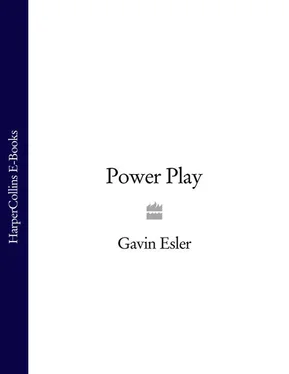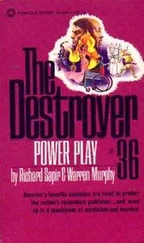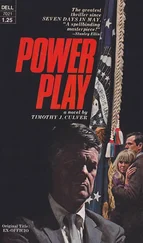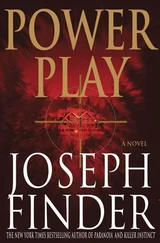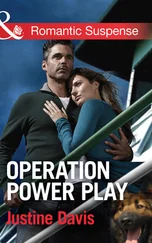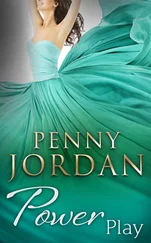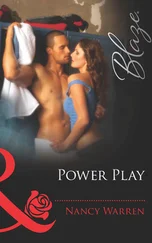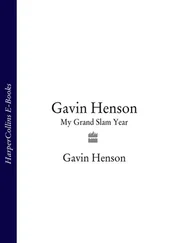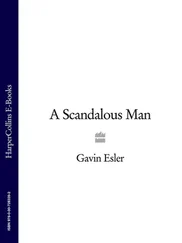‘My good friend the Prime Minister of Great Britain is welcome to raise any issue with us,’ he said. ‘Any issue at all. That is what friends do. Doesn’t mean to say we are going to agree.’ Then he started to repeat the kind of things he had told Fraser Davis at that disastrous meeting at Chequers the previous year. He went through his ‘Neutrality Is Immoral’ speech, coupled with the instruction that America’s allies were all expected to help win the ‘War on Terror’.
‘Be clear: if you are in the business of harming American citizens, or of helping those who do, you will pay a price and the price could be your life.’
The declassified version of ‘The Spartacus Solution’ that was handed round to White House journalists argued that the United States could never completely defeat all its enemies in the War on Terror, but it did not have to. What America had to do, General Shultz argued in his essay, was to punish to the utmost those terrorists it could catch, without mercy, even at the risk of being thought cruel and imperialist.
The handout included what I thought was the essay’s most controversial conclusion, in full.
The Romans in the Roman Republic and later in the Empire knew they could never be sure to deter a slave rebellion. There was always the chance that somewhere, someone would rise up violently against his master. But when it happened on a grand scale under Spartacus, each of the captured rebellious slaves was crucified on the roads around Rome, their bodies left to rot and be feasted upon by vermin. In the twenty-first century, Roman methods are inappropriate, but Roman psychology is useful. There will always be rebellions, always troublemakers, always potential suicide bombers. The Spartacus Solution will ensure that terrorists are kept alive long enough to confess, to betray their comrades, and pay the full penalty. The United States in the twenty-first century must be a good friend. We must also be a ruthless and implacable enemy.
One other conclusion was also made public:
The more hostile media we receive for perceived human-rights abuses, the more discriminate our deterrence and the more potent the Spartacus Solution. Hostile media works for us. It is an effective communications tool. The Romans understood it best: Fear works.
‘But just talking of a Spartacus Solution, Mr Vice-President,’ one of the White House reporters asked, waving the extracts in her hand, ‘isn’t that inflammatory? Crucifying terrorists on the road to Rome? Is that seriously going to be American policy in the twenty-first century?’
‘You are, with respect, confusing a metaphor with a policy,’ Vice-President Black retorted. ‘What is inflammatory is blowing up American airliners on takeoff from Manila.’
Another British reporter, Jack Rothstein from The Times, stood up. I liked Rothstein and had in the past briefed him about our side of the rows over torture and Muhammad Asif Khan.
‘Mr Vice-President, diplomatic sources say this kind of talk is not in the best traditions of the United States. Abraham Lincoln …’
‘And I have explained to “diplomatic sources” that Abraham Lincoln did not have to deal with your British suicide bombers,’ Bobby Black interrupted scornfully.
‘We will not rest until all the people attacking us are in a place where they can no longer do any harm. We will do what it takes. Abraham Lincoln would understand that, even if a few diplomats in striped pants don’t get it.’
Black went on the offensive. He said that since 9/11 you were ‘either with the United States or you were against it. There just is no middle way. There is no split-the-difference between Right and Wrong.’
‘Aren’t things a bit more complicated in the real world than simply black or white?’ a woman from CBS suggested.
‘On the contrary: since Manila, there is no such colour as grey,’ Bobby Black shot back. ‘International leaders, diplomats, journalists who see the world in terms of grey are deluding themselves, or, worse, they are deluding the people who elected them–or, in the case of some TV news anchors, they are deluding the people who watch their news programmes.’
I listened to the interview with sinking heart. My job is a study in shades of grey. I sent Kristina a text message: ‘You watching this?’ She did not text back. A couple of hours later, FOX News quoted an unnamed ‘American official’ describing me personally as ‘a leading appeaser of terror’ for my intervention in the Khan case, and saying it was ‘not expected’ that Prime Minister Fraser Davis would ‘waste time during his upcoming Washington visit’ arguing on behalf of the rights of a terrorist, ‘unlike Ambassador Alex Price.’ We started to take hostile calls at the embassy. The people at FOX News gave out our number on the air, which meant that every right-wing wacko with access to a telephone dialled in to shout abuse at what one caller described as the ‘pansy-assed British faggots.’ Ironic, you might think, given that at that very point I was no longer pressing Khan’s case at all.
Late that night, Kristina called me on my mobile. ‘I guess you saw it?’ she said.
‘Oh, yes.’
‘What did you think?’
‘Any statement which pisses off your friends and encourages your enemies is not a good idea.’
‘That good, uh?’ Kristina said.
‘Are you coming to the dinner for the Prime Minister?’ I wondered. I was hosting the event at the ambassador’s residence.
‘Yes.’
‘Will you be my partner for the evening?’
Kristina thought for a moment.
‘Of course.’
Then she rang off.
dThe day before the Prime Minister was due to arrive in Washington, I had yet another run-in with Bobby Black. It was becoming increasingly difficult to deal with him, even though I had managed to ensure–thanks to some deft footwork from Kristina–that Fraser Davis would indeed sit down with President Carr for his allotted fifteen minutes of ‘special relationship’ face-time. I had promised that Davis would not raise the Khan case. Johnny Lee Ironside called me.
‘I see you got your man in,’ he laughed. ‘Despite the best efforts of me and my man to keep him out.’
‘I don’t know what you’re talking about,’ I replied.
‘You and me need a serious talk, Alex,’ he said.
‘You coming to the dinner for the Prime Minister? It’s over at ten. Stay behind afterwards and have a few beers with me. We need to do something to make all this better before it turns into a festering sore.’
‘Talking ‘bout festering sores,’ he said, ‘the Vice-President wants to see you again. Wants to whup your English ass.’
This time it was about Britain’s reluctance to provide locations for part of the anti-ballistic missile shield the newspapers call ‘Star Wars’. Fraser Davis had been back-pedalling. The Poles and Czechs had been threatened with Russian nuclear obliteration for their part in playing host to the American radar network, and there were political problems too. As soon as the Spartacus Solution news conference ended, you could feel the wave of unpopularity towards Carr and Black hit Britain, Europe, and most American allies.
It was profoundly dispiriting. Carnwath told me it was starting to rival the way the United States was seen during the Bush/Cheney administration at their worst. Fraser Davis could read opinion polls. He did not like the new wave of anti-Americanism. None of us did. But he also knew he had to be careful. Carnwath told me that at all costs Fraser wanted to avoid what he called ‘the poodle factor’–being seen to jump to every American demand; being thought of as the new Tony Blair. On the way to the White House, I skimmed through my briefing papers on missile defence in the back of the Rolls. This time it was just Bobby Black, Johnny Lee, the British military attaché Lee Crieff, and me. No Kristina. As she feared, she had been sidelined in matters that she should have played a part in.
Читать дальше
